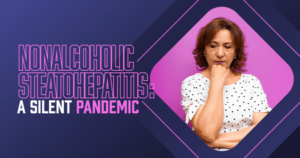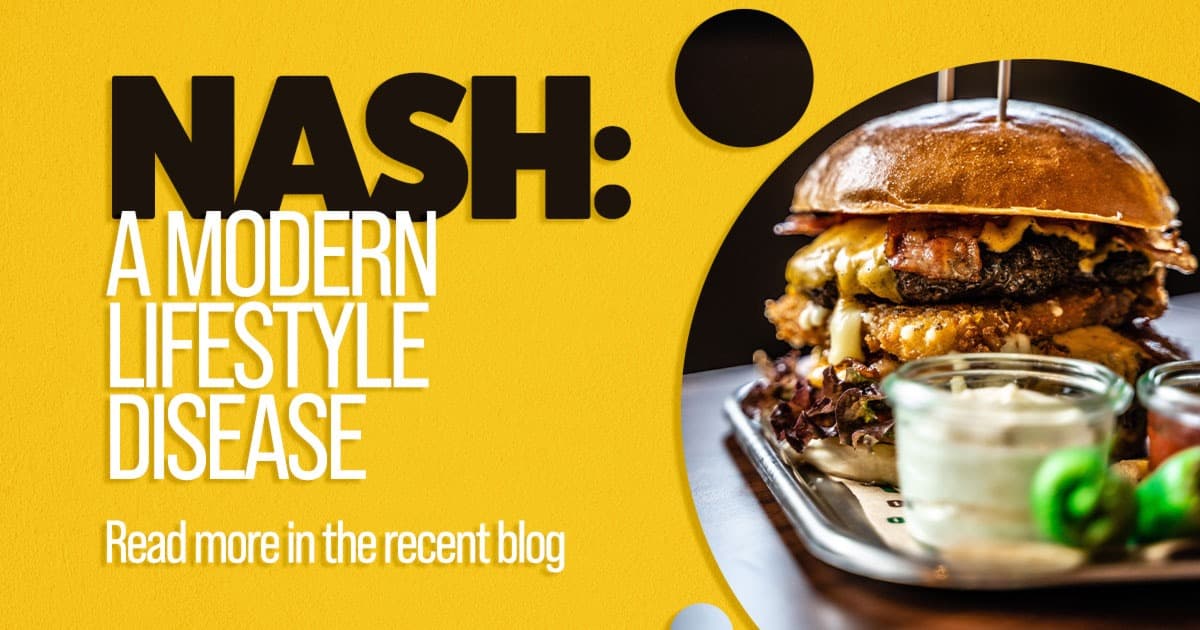Fatty liver disease is a condition with a build-up of fat in the liver. Alone, some fat isn’t problematic. However, if there is too much of it, health problems can develop like non-alcoholic fatty liver disease (NAFLD) and non-alcoholic steatohepatitis (NASH). In most cases, NASH is the consequence of years of consuming high-sugar and high-fat foods and insufficient physical exercise. It’s a disease of the modern lifestyle, and a growing epidemic affecting 20-40% of Americans.

What You Eat Now, Affects Your Liver Later
Many factors have gone into our nation evolving into a high consumer of unhealthy food and less driven to be active. So how does that affect the liver? The liver transforms sugars into fat so that they can be stored for later use. When too much sugar and fat is consumed, the liver stores the excess, unable to distribute the large amounts coming into the body usefully. Once the fatty liver cells amount to 5% or more of the liver, something is triggered.
In some individuals, the accumulation of fat remains a non-issue. For others, the body’s immune system is alerted, and it begins the “healing” process to help restore balance. This is called the tipping point because the inflammation is meant to help the liver begin to damage and scar it. This stage marking when inflammation begins is NASH. Without intervention, the scarring of the liver continues, eventually replacing healthy tissues. Ultimately, the liver cannot perform the vital functions needed for the body. Cirrhosis and liver cancer follow after.
Be a Voice for Your Liver
NASH is a silent disease, creeping along unnoticed until complications reveal it, often in the later stages. Most people don’t know they have NASH, but knowing the factors contributing to development can save your life. In addition, some individuals are more at risk for NASH than others due to certain conditions like:
- Being overweight
- Type 2 diabetes
- Insulin resistance
- Metabolic syndrome
The Liver Isn’t an “Optional” Organ.
With lifestyle changes and managing any chronic conditions, you can stop, reverse, and even prevent the progression of NASH when caught in time. The liver is a life-sustaining organ that contributes significantly to the body’s health. If you’re at risk, the time to act is NOW.

There are currently no approved treatments for NASH. However, research is advancing what we know about it and moving potential new options closer to patients. To learn more about enrolling NASH studies at Synergy Healthcare, call (941) 896-4948 or visit our website.
References:












